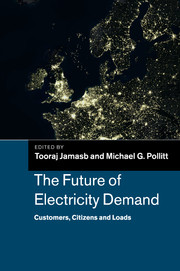Book contents
- Frontmatter
- Contents
- List of Figures
- List of Tables
- List of Boxes
- List of Contributors
- Foreword
- Preface
- Acknowledgements
- Introduction and overview of the chapters
- Part I The economics
- Part II Technology
- Part III Social dimensions
- 9 From citizen to consumer: energy policy and public attitudes in the UK
- 10 The local dimension of energy
- 11 Centralization, decentralization and the scales in between: what role might they play in the UK energy system?
- 12 Equity, fuel poverty and demand (maintaining affordability with sustainability and security of supply)
- 13 Energy spending and vulnerable households
- Part IV Policy and regulation
- Index
- References
12 - Equity, fuel poverty and demand (maintaining affordability with sustainability and security of supply)
from Part III - Social dimensions
Published online by Cambridge University Press: 05 March 2014
- Frontmatter
- Contents
- List of Figures
- List of Tables
- List of Boxes
- List of Contributors
- Foreword
- Preface
- Acknowledgements
- Introduction and overview of the chapters
- Part I The economics
- Part II Technology
- Part III Social dimensions
- 9 From citizen to consumer: energy policy and public attitudes in the UK
- 10 The local dimension of energy
- 11 Centralization, decentralization and the scales in between: what role might they play in the UK energy system?
- 12 Equity, fuel poverty and demand (maintaining affordability with sustainability and security of supply)
- 13 Energy spending and vulnerable households
- Part IV Policy and regulation
- Index
- References
Summary
Introduction
Fuel poverty has been the subject of campaigns and government policy for more than twenty years. The target for its eradication among vulnerable households in 2010 was missed because of rising fuel prices and the environmental agenda. This chapter examines how the concept of fuel poverty fits with other aspects of the energy policy agenda and the extent to which the government's official targets and policy correspond to more subjective measures of ‘affording fuel’. In the UK this discussion is placed in the context of developing competition in retail energy markets, and raises questions about whether choice of supplier at the household level, long a prized achievement of the UK regulator and government, remains the most appropriate way to deliver the current social and environmental objectives.
The next section of the chapter explains the background to the current debate. Section 12.3 considers different concepts of fuel poverty, including one derived from interview data with households. Section 12.4 describes the official policy and its development in the UK. Section 12.5 draws on the experience of other countries; first among developing countries, then narrowing the scope to those who seek entry to the EU, and then those who are already EU members. Section 12.6 concludes.
- Type
- Chapter
- Information
- The Future of Electricity DemandCustomers, Citizens and Loads, pp. 298 - 317Publisher: Cambridge University PressPrint publication year: 2011
References
- 3
- Cited by



